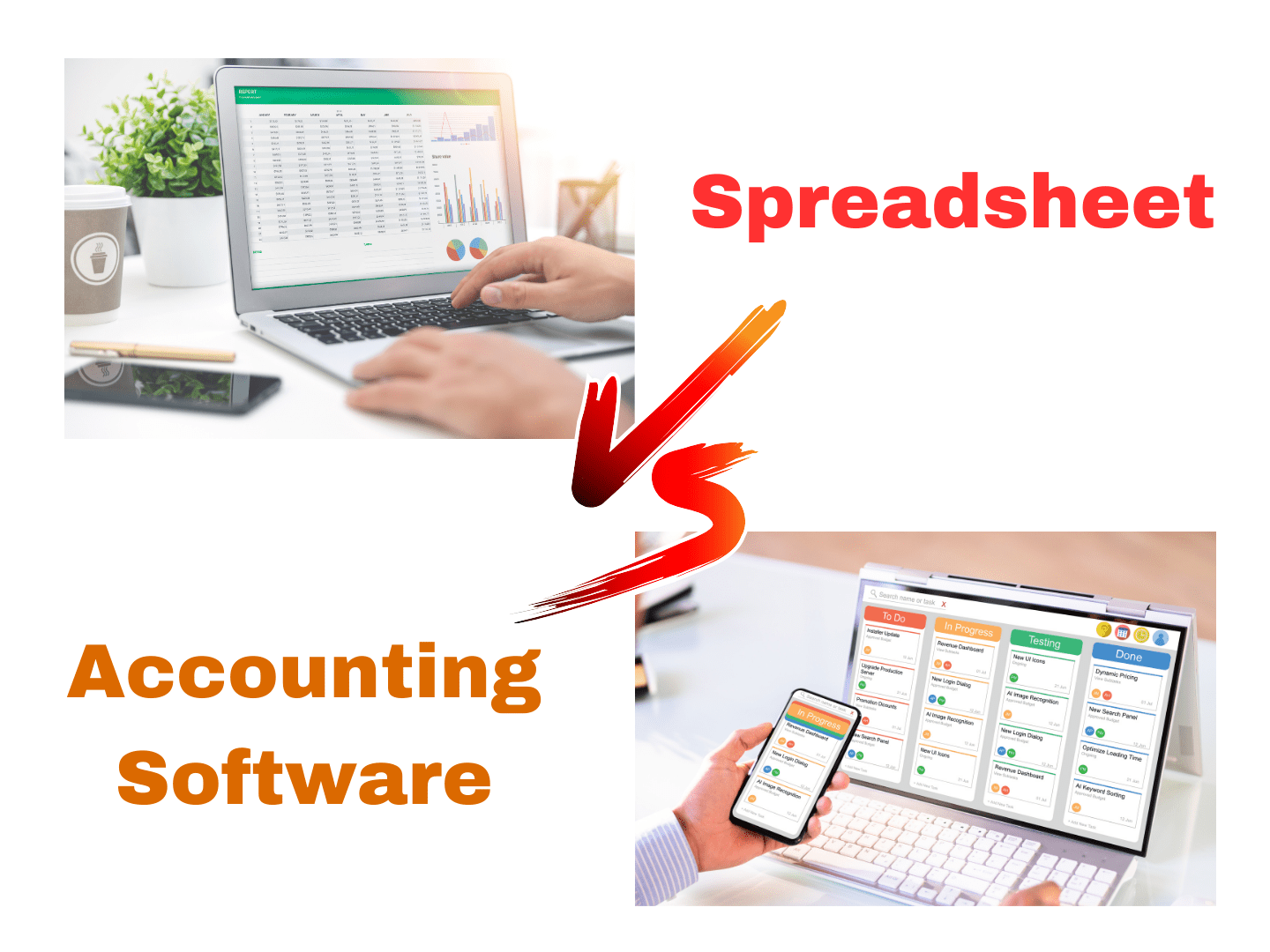
In the realm of financial management, businesses often face a critical decision: whether to rely on spreadsheets or invest in dedicated accounting software. Both options have their advantages and limitations, and selecting the right tool can significantly impact a company’s efficiency, accuracy, and growth potential. In this blog, we’ll delve into the differences between spreadsheets and accounting software to help you make an informed decision for your business.
Spreadsheets: The Familiar Choice
Spreadsheets, such as Microsoft Excel or Google Sheets, are ubiquitous tools used by businesses worldwide for financial tracking, analysis, and reporting. They offer flexibility and customization, allowing users to create tailored templates and formulas to suit their specific needs. Here are some key characteristics of spreadsheets:
- Flexibility: Spreadsheets are highly flexible and customizable, making them ideal for ad-hoc analysis and one-time calculations.
- Familiarity: Many professionals are already familiar with spreadsheet software, reducing the learning curve for implementation.
- Low Cost: Spreadsheets are often included in productivity suites or available for free, making them a cost-effective solution for small businesses with limited budgets.
- Versatility: In addition to financial functions, spreadsheets can be used for a wide range of purposes, such as project management, inventory tracking, and data visualization.
Limitations of Spreadsheets:
Despite their versatility, spreadsheets have certain limitations that can hinder financial management processes, especially as businesses scale:
- Prone to Errors: Manual data entry and formula errors are common in spreadsheets, leading to inaccuracies in financial reports and analysis.
- Limited Scalability: Spreadsheets are not designed to handle large volumes of data or complex financial transactions, making them less suitable for growing businesses.
- Lack of Integration: Spreadsheets operate in isolation, making it challenging to integrate with other business systems or collaborate in real-time.
- Security Concerns: Spreadsheets stored on local computers are vulnerable to data breaches and loss, posing security risks for sensitive financial information.
Accounting Software: The Comprehensive Solution
Accounting software, on the other hand, is specifically designed to streamline financial processes, automate tasks, and provide comprehensive insights into business performance. Whether it’s basic bookkeeping or advanced financial analysis, accounting software offers a range of features tailored to meet the needs of modern businesses. Here are some advantages of accounting software:
- Automation: Accounting software automates routine tasks such as data entry, reconciliation, and invoice generation, reducing manual errors and saving time.
- Real-Time Reporting: With real-time access to financial data, accounting software enables timely reporting and analysis, empowering businesses to make informed decisions.
- Scalability: Accounting software scales with your business, accommodating growing volumes of data and increasing complexity without compromising performance.
- Integration: Most accounting software solutions offer integration with other business systems, such as CRM software, inventory management, and e-commerce platforms, enabling seamless data exchange and collaboration.
- Security: Accounting software employs robust security measures, such as encryption, user authentication, and data backup, to protect sensitive financial information from unauthorized access or loss.
Making the Right Choice:
Choosing between spreadsheets and accounting software depends on your business needs, budget, and growth objectives. While spreadsheets may suffice for small businesses with simple financial requirements, larger enterprises or those experiencing rapid growth may benefit from the comprehensive features and automation capabilities of accounting software.
Remember, investing in the right accounting software can pay dividends in the long run, helping you take control of your finances and steer your business towards success.
accounting software vs spreadsheet spreadsheet or accounting software Spreadsheet vs accounting software